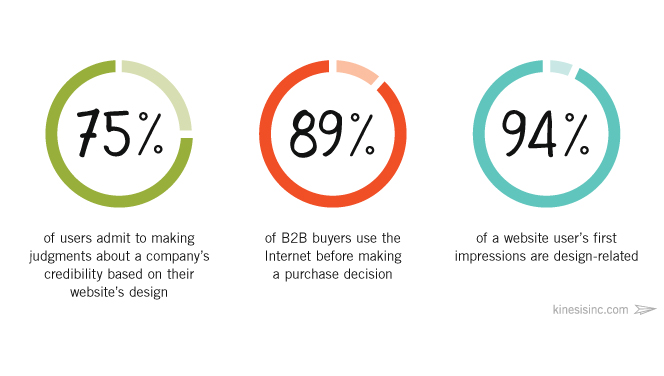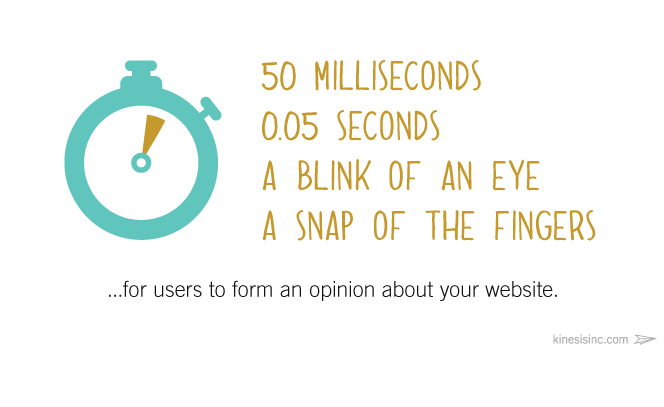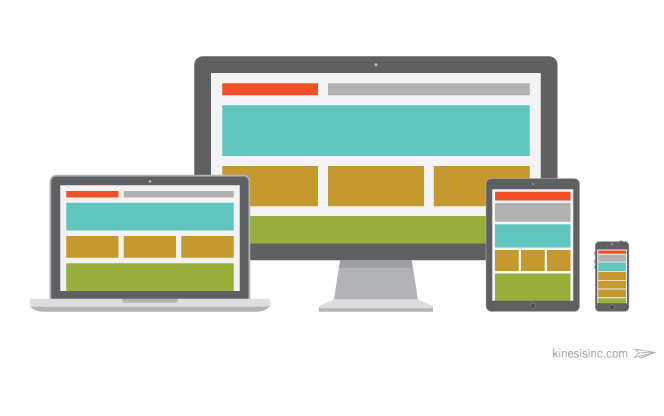
The Spark: Shoving the robotics industry into the 21st century
Loupe’s spark was Shuv — a proprietary offering enabling engineers to remotely push updates to any machine, from anywhere.
Meet your B2B customers and prospects of today: They are networked, tech savvy, on-the-go, and (believe it or not) now statistically more likely to look at your website via a mobile device than a desktop computer.
With the mobile takeover of web activities growing rapidly, it’s become more important than ever for B2B companies to adapt to their prospects’ online habits and embrace responsive design.
But more on that in a minute. First, some facts about your customers.
89% of B2B buyers use the Internet before making a purchase decision.

18- to 34-year-olds account for more than half of all online researchers.

 One of the best ways to reach this evolving B2B customer is to create a professional, customer-centric, and (most importantly) responsive website. Responsive web pages automatically “respond” to any screen size and resolution, regardless of the device or browser type. Layouts are designed to morph into the most attractive and user-friendly format, with images and navigation flexing to provide the best experience for website visitors.
One of the best ways to reach this evolving B2B customer is to create a professional, customer-centric, and (most importantly) responsive website. Responsive web pages automatically “respond” to any screen size and resolution, regardless of the device or browser type. Layouts are designed to morph into the most attractive and user-friendly format, with images and navigation flexing to provide the best experience for website visitors.
However, despite these shifts in buyer behavior and the new marketing ecosystem, many B2B companies are proving too slow to recognize and respond to the realities of today's online marketplace. Only a fraction of B2B websites are responsive – and in our experience conducting competitor analysis for our clients, some B2B industries clock in as low as only 30 percent responsive sites.
What does that mean for companies in the B2B space? That an enormous window of opportunity has been left open.
In a crowded competitive landscape, it’s crucial to carve out a space where your brand grabs and holds the attention of your prospects. And as a B2B company, the stakes are even higher since your customers’ purchases are so much larger and your lead pool smaller than most B2C companies.
By making your website responsive, you will more effectively engage both prospects and customers. And because the B2B world is so slow to adopt responsive programming, companies with responsive websites will have a distinct competitive advantage.
In fact – shhh! – many of your B2B competitors don’t even know that a non-responsive website not only alienates their users, but it actually jeopardizes a user’s ability to reach their site.
Why? Because of a 2015 search engine phenomenon dubbed “Mobilegeddon.” Mid-last year, Google announced its new mobile-friendly ranking algorithm – designed to boost responsive sites in Google search results, and actually penalize those sites that are not optimized for mobile users.
In other words, users aren’t just more likely to get more value from a responsive site – they’re also more likely to be able to find it to begin with.
B2B companies can use responsive websites to provide resources for B2B researchers, helping them to convert to qualified leads. However, responsive benefits don't stop there. Here are some other ways to leverage the power of responsive websites:
Use it to attract A-Players. Take Reitmeier, a commercial HVAC company, who has developed a robust, responsive career section designed to attract “REIT-fit” talent.
Describe your approach to providing solutions to your clients. Corios, an analytics consulting firm, devotes a responsive page to “The Corios Way” – their unique delivery map.
Tell the customer what to expect. Pacific Energy Concepts, a commercial and industrial energy consultancy specializing in LED lighting retrofits, has a page on their site that describes each step of their project process.
Your website should be an asset that delivers a big return on investment. It should work for you 24/7, add value to your clients, engage and inform visitors, attract top talent, and reinforce your company’s brand in an attractive and appealing way. With user-centric responsive design becoming such a competitive advantage, there’s never been a better time to capitalize on online opportunities to successfully reach your B2B prospects.
Kinesis helps small- to mid-sized companies leverage responsive design to build and grow an online brand presence. Learn more about our transformative approach to B2B marketing.
Get insights like this straight to your inbox.